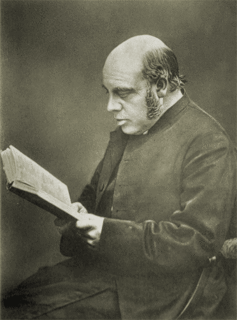A Quote by Pope John Paul II
I cannot fail to note once again that the poor constitute the modern challenge, especially for the well-off of our planet, where millions of people live in inhuman conditions and many are literally dying of hunger. It is not possible to announce God the Father to these brothers and sisters without taking on the responsibility of building a more just society in the name of Christ.
Quote Topics
Again
Announce
Brothers
Brothers And Sisters
Building
Cannot
Challenge
Christ
Conditions
Constitute
Dying
Fail
Father
God
Hunger
Inhuman
Just
Literally
Live
Many
Millions
Millions Of People
Modern
More
Name
Note
Off
Once
Our
Our Planet
People
Planet
Poor
Possible
Responsibility
Sisters
Society
Taking
Well
Without
Related Quotes
Jesus' life and words are a challenge at the same time that they are Good News. They are a challenge to those of us who are poor and oppressed. By His life He is calling us to give ourselves to others, to sacrifice for those who suffer, to share our lives with our brothers and sisters who are also oppressed. He is calling us to "hunger and thirst after justice" in the same way that we hunger and thirst after food and water: that is, by putting our yearning into practice.
Our dead brothers and sisters still live for us and bid us think of life, not death-of life to which in their youth they lent the passion and glory of Spring. As I listen, the great chorus of life and joy begins again, and amid the awful orchestra of seen and unseen powers and destinies of good and evil, our trumpets sound once more a note of daring, hope, and will.
If our poor die of hunger, it is not because God does not care for them. Rather, it is because neither you nor I are generous enough. It is because we are not instruments of love in the hands of God. We do not recognize Christ when once again He appears to us in the hungry man, in the lonely woman, in the child who is looking for a place to get warm.
Technological society leads to increasing numbers of people who cannot adapt to the inhuman rhythm of modern life with its emphasis on specialization. A class of people is growing up who are unexploitable because they are not worth employing even for the minimum wage. Technological progress makes whole categories of people useless without making it possible to support them with the wealth produced by the progress.
We cannot separate our lives from the Eucharist; the moment we do, something breaks. People ask, 'Where do the sisters get the joy and the energy to do what they are doing?' The Eucharist involves more than just receiving; it also involves satisfying the hunger of Christ. He says, 'Come to Me.' He is hungry for souls.
Prayer, fasting, vigils, and all other Christian practices, however good they may be in themselves, certainly do not constitute the aim of our Christian life: they are but the indispensable means of attaining that aim. For the true aim of the Christian life is the acquisition of the Holy Spirit of God. As for fasts, vigils, prayer and almsgiving, and other good works done in the name of Christ, they are only the means of acquiring the Holy Spirit of God. Note well that it is only good works done in the name of Christ that bring us the fruits of the Spirit.
Humans need Jesus Christ as a necessity and not as a luxury. You may be pleased to have flowers, but you must have bread. . . . Jesus is not a phenomenon, He is bread: Christ is not a curiosity, He is water. As surely as we cannot live without bread, we cannot live truly without Christ: If we know not Christ we are not living, our movement is a mechanical flutter, our pulse is but the stirring of an animal life.
Students will want to address the issues that they have a passion for, but I think that the challenge to this generation is the challenge of the climate crisis. Young people bring more enthusiasm, knowledge and sense of urgency on that issue. This is as planet they will inherit, they have a responsibility for it as well, and part of that responsibility is to urge people in power to make the right decisions about how we go forward.
Therefore we pledge to bind
ourselves to one another, to embrace
our lowliest, to keep company with
our loneliest, to educate our illiterate,
to feed our starving, to clothe our
ragged, to do all good things,
knowing that we are more than
keepers of our brothers and sisters.
We are our brothers and sisters








































